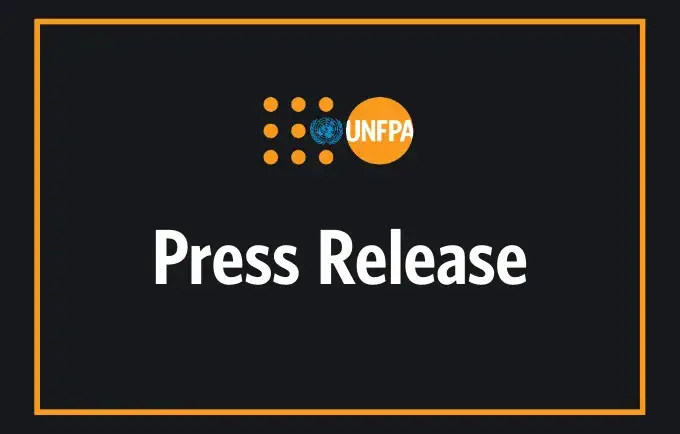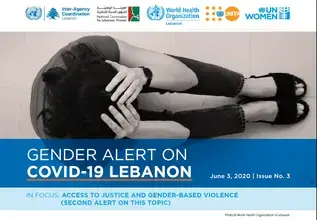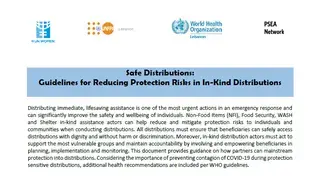At least 3.2 million people are expected to require humanitarian assistance in 2021. An estimated economic contraction of 24% in 2020, skyrocketing poverty rates, and civil unrest have compounded needs among Lebanese and non-Lebanese communities. Lebanon hosts 1.5 million refugees, the largest number of displaced people per capita in the world. 80% of the refugee population lives below the extreme poverty line. Growing COVID-19 transmission is straining the country’s health systems and increasing the challenges to access affordable SRH services.
The Beirut port explosion has introduced new vulnerabilities and exposed women and girls to heightened risk of violence and exploitation, already significant before the explosion because of the lockdown and the economic crises. UNFPA is scaling up interventions focusing on quality, comprehensive and accessible sexual and reproductive health (SRH), mental health and psychosocial support services, and gender-based violence (GBV) risk mitigation initiatives.
In times of crisis, the risk of pregnancy-related deaths and (GBV) might rapidly increase. UNFPA works closely with government partners, local NGOs, UN agencies to ensure that sexual reproductive health and rights (SRHR) and responses to GBV are integrated into emergency responses. UNFPA procures and distributes hygiene supplies and reproductive health kits providing core life-saving services. UNFPA also responds to increased risk of GBV supporting services for GBV survivors (psychosocial and medical support), both as a stand-alone focus and as an integrated into the sexual and reductive health supported programs. UNFPA applies a unique approach to preventing and responding to GBV, which bridges protection, gender equality and sexual and reproductive health and rights in humanitarian action. UNFPA supports the provision of equipment and supplies of health facilities and the capacity of health staff to address the health implications of gender-based violence while providing post-rape treatment kits for the clinical management of rape survivors. UNFPA also establishes safe spaces for women and girls where services such as psycho-social support, legal counselling and life skills sessions can be accessed.
UNFPA has been contributing to the Lebanon Crisis Response Plan since its first launch in 2013, responding to the needs of vulnerable Syrian refugees and members of the host communities affected by the Syrian crisis. Since 2020 UNFPA Lebanon’s also contributes to the Covid-19 Response Plan and in the past years have responded to different emergencies since 1996 until the recent Beirut Port Explosion (August 2020) compounded by the ongoing and current deteriorating economic crisis which also increased vulnerabilities and risks to GBV and SRH.
Following the Beirut Port Explosion that shook Beirut’s Port on 4 August 2020, devastating large parts of Beirut, UNFPA scaled up its efforts to meet the emerging needs of nearly 81,000 women of reproductive age, including 48,000 adolescents, among the 300,000 people who have been displaced due to the catastrophe. UNFPA, as a direct response to the emergency, collaborated with 23 partners from diverse regions, who were entrusted with scaling up their efforts and switching many of their activities to respond to the emergency operation with the aim to reach those mostly affected through provision of sexual and reproductive health (SRH) services as well as prevention and response to gender-based violence (GBV) in the affected areas. In addition, UNFPA immediately initiated the distribution of dignity kits through its existing implementing partner and the deployment of eight mobile medical units to safeguard the need for first aid support and continuity of health care services for vulnerable people in the affected areas.
Objectives
According to the business model, Lebanon is in the ‘pink’ quadrant; however, the recurrent humanitarian and emergency situations that Lebanon has been facing since 2011 required that UNFPA modes of engagement also include targeted capacity development, and SRH/GBV service delivery. The Country Program (CP) focuses primarily on women and adolescent girls through various interventions targeting Syrians as well as Lebanese, mostly vulnerable in host communities. It also provides direct support to those affected by the Beirut Port Explosion. In parallel, the CP seeks to contribute to the resilience vision of the Government by delivering medium to long term scaled up interventions towards stabilization. The CP also aims at strengthening national and institutional capacities across various sectors namely statistics, health, protection, to tailor/scale up interventions as well as inform policy making. Lastly, the level and intensity of policy dialogue are being enhanced in the areas covered by the country program and contextual to the identified needs and priorities.





